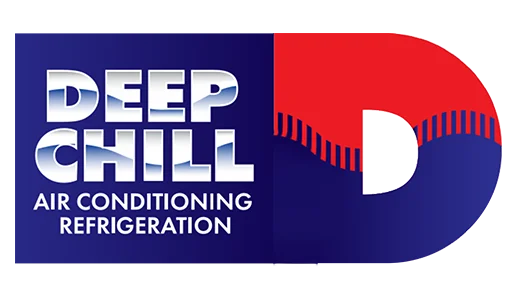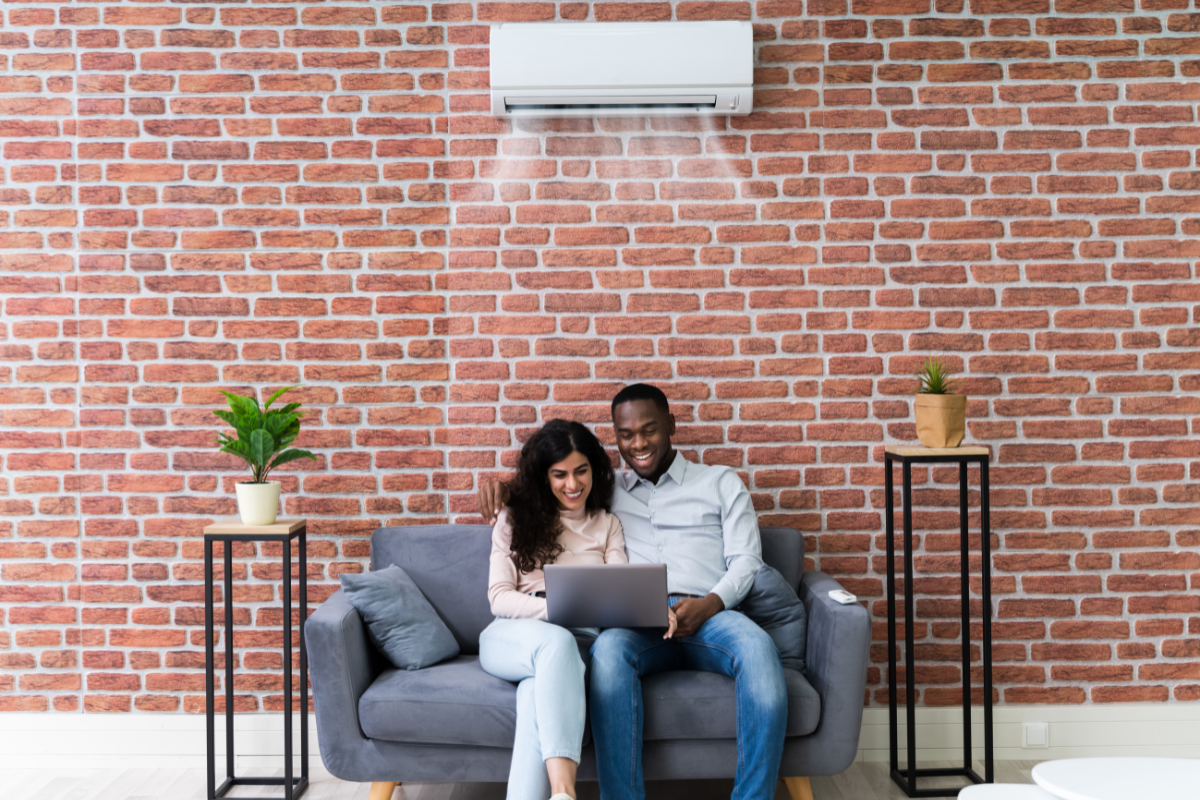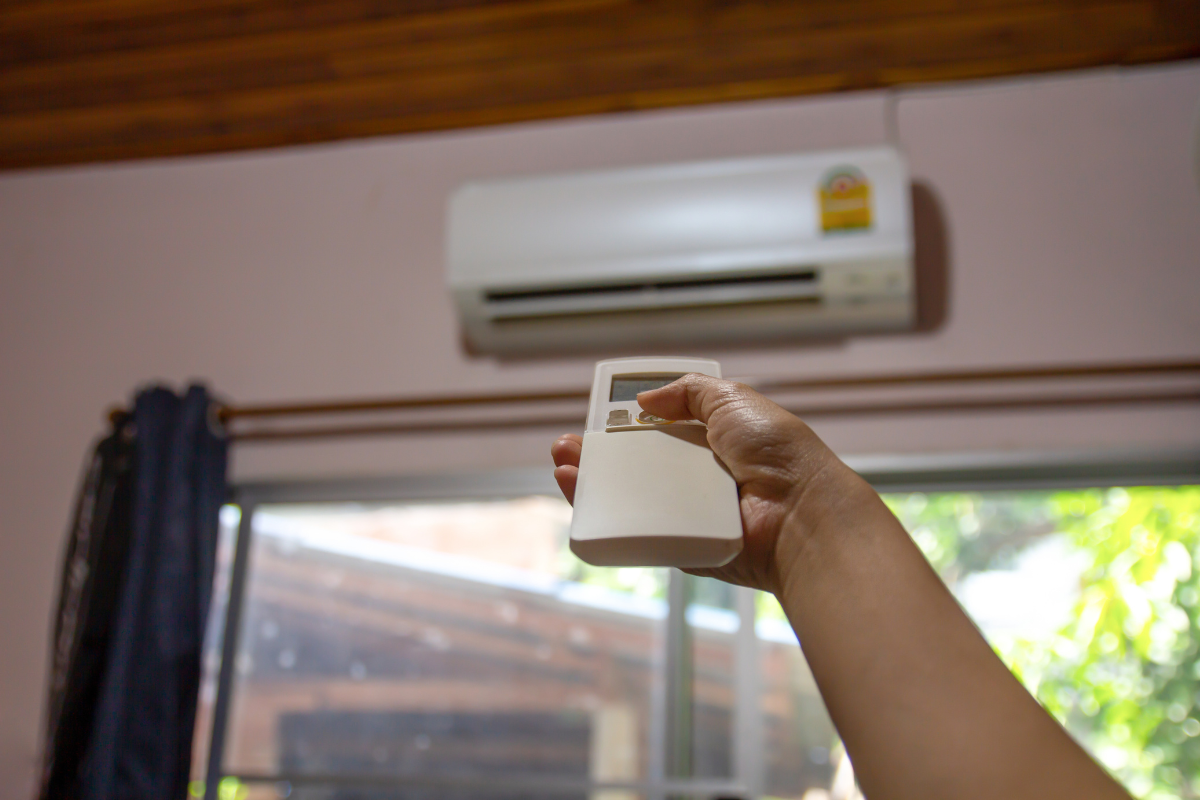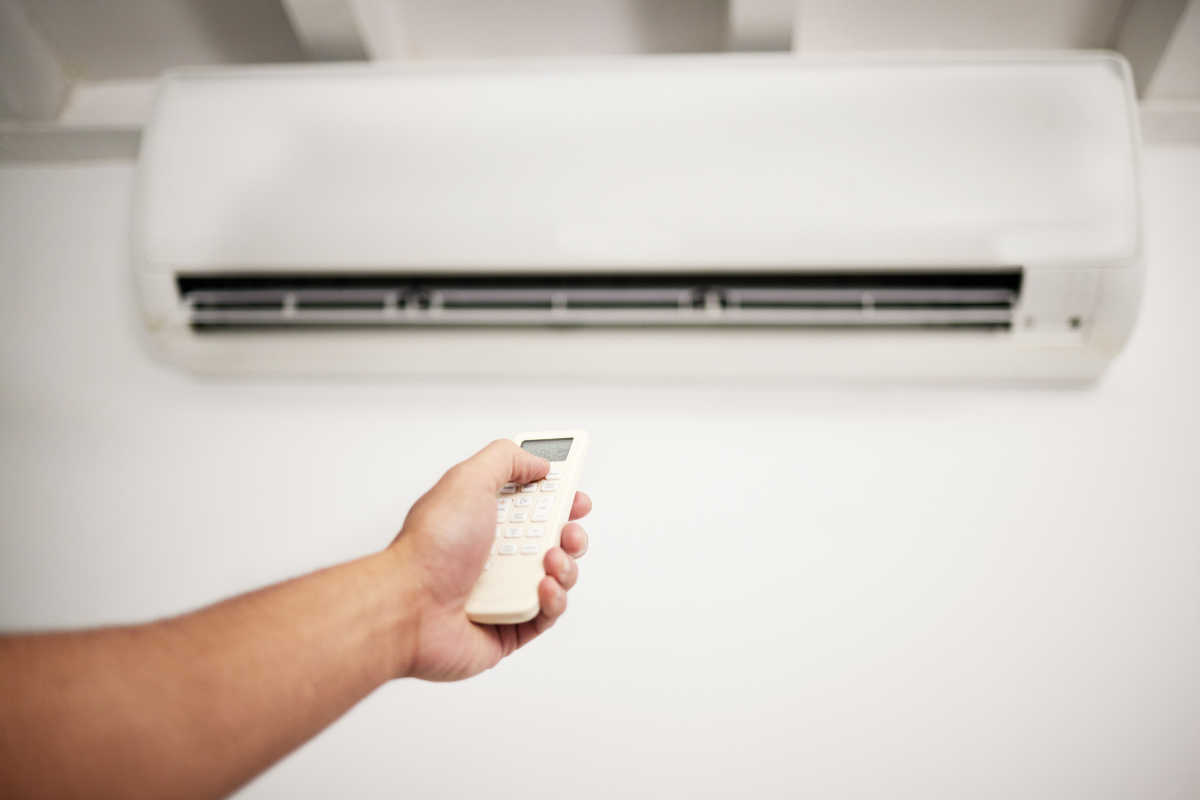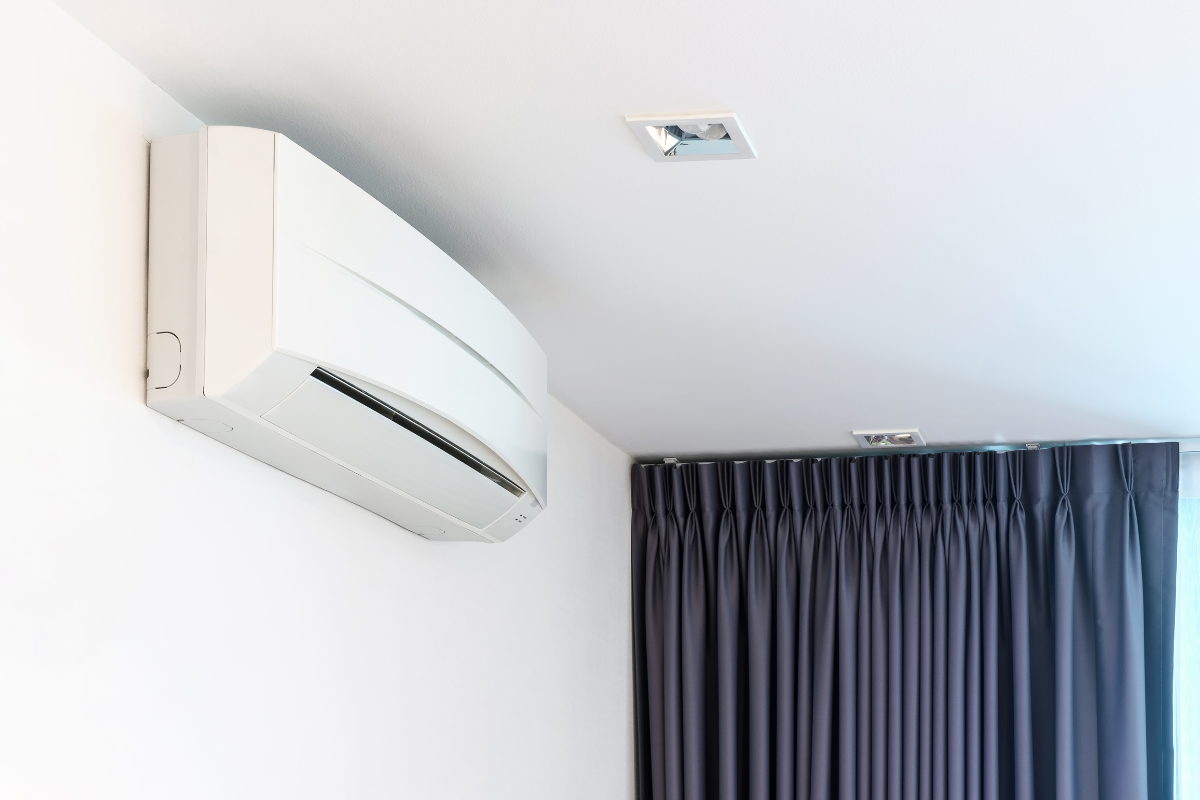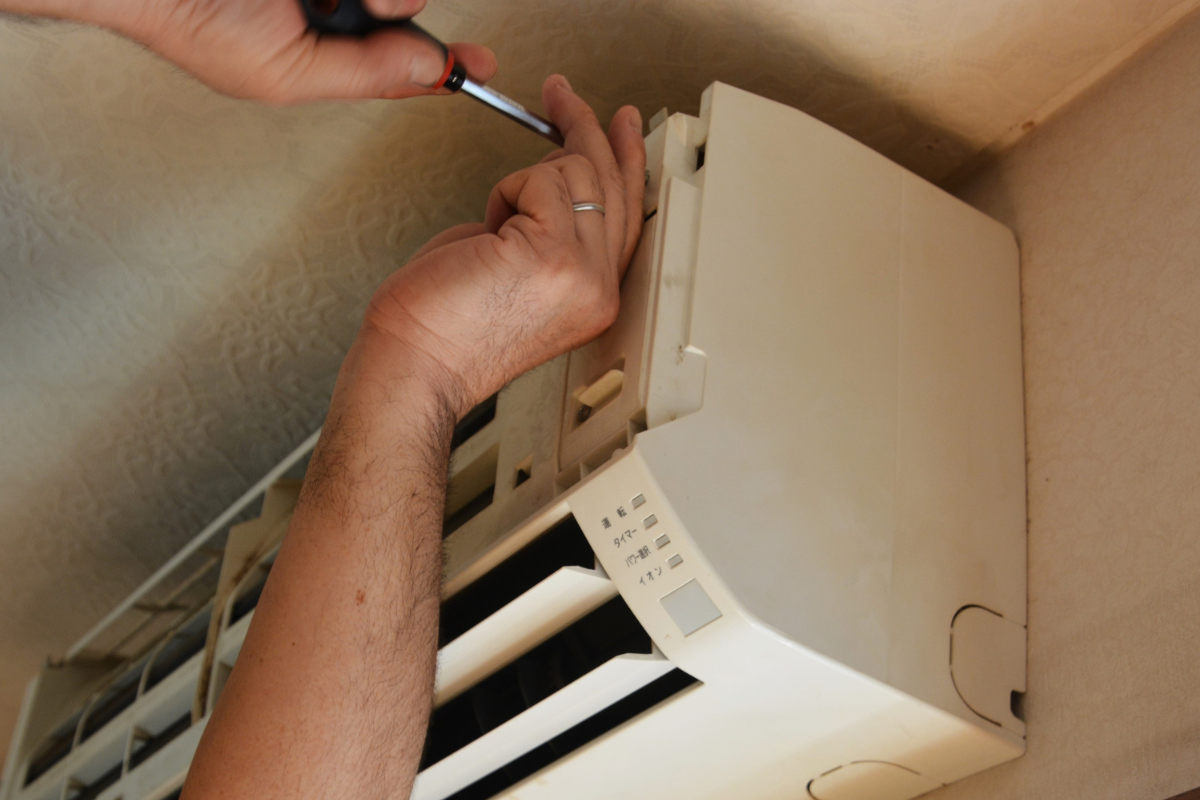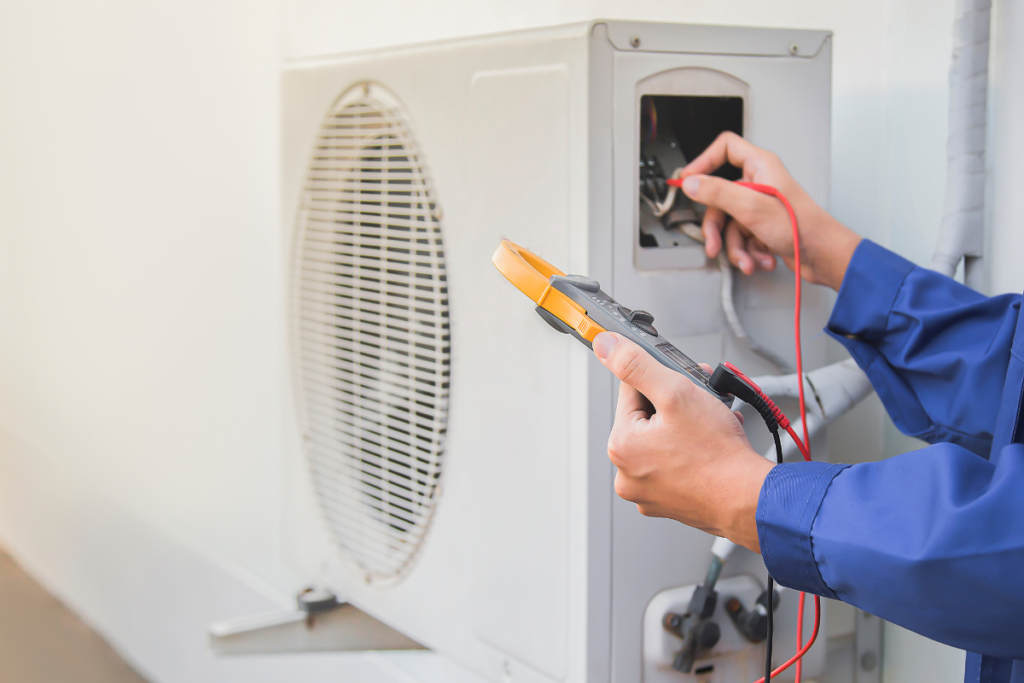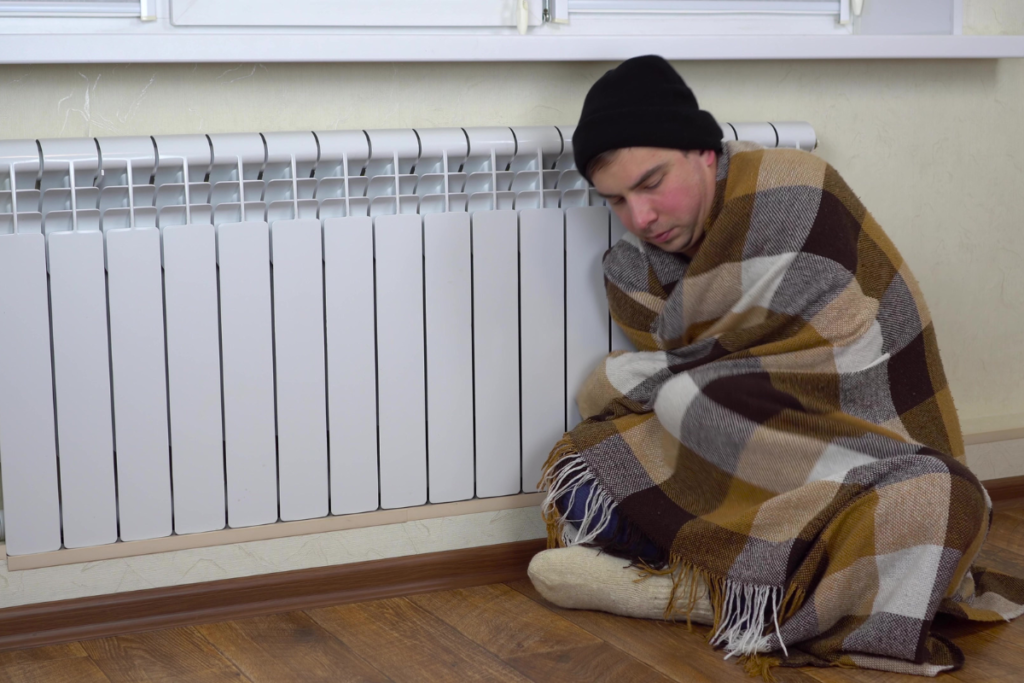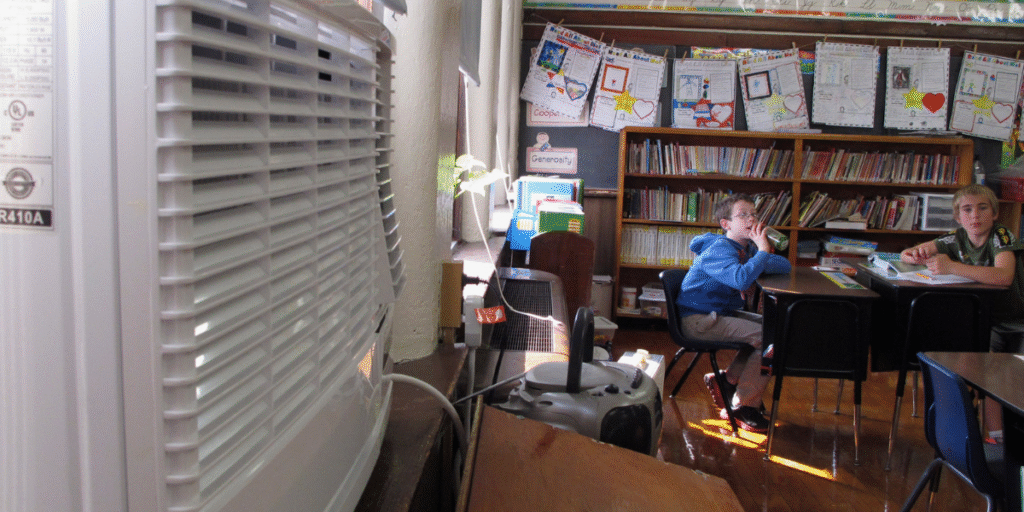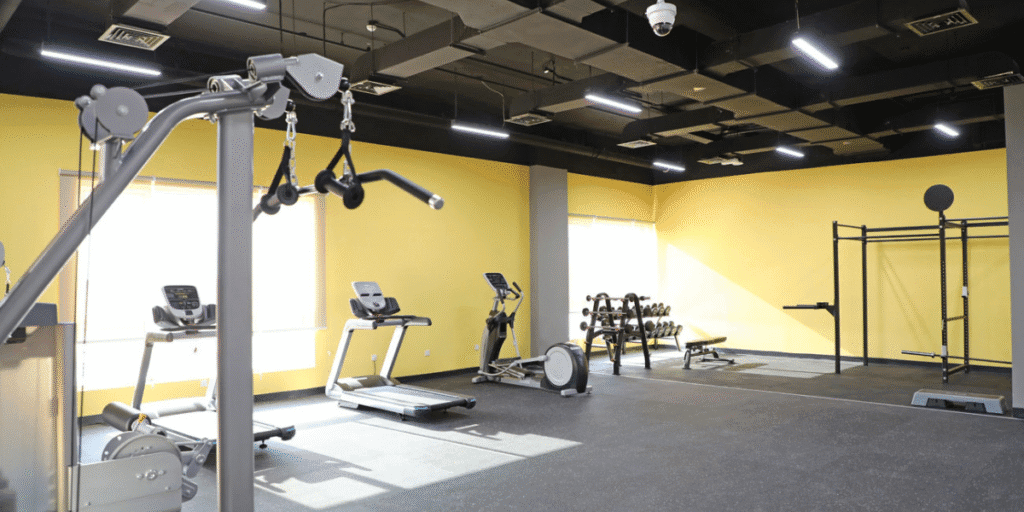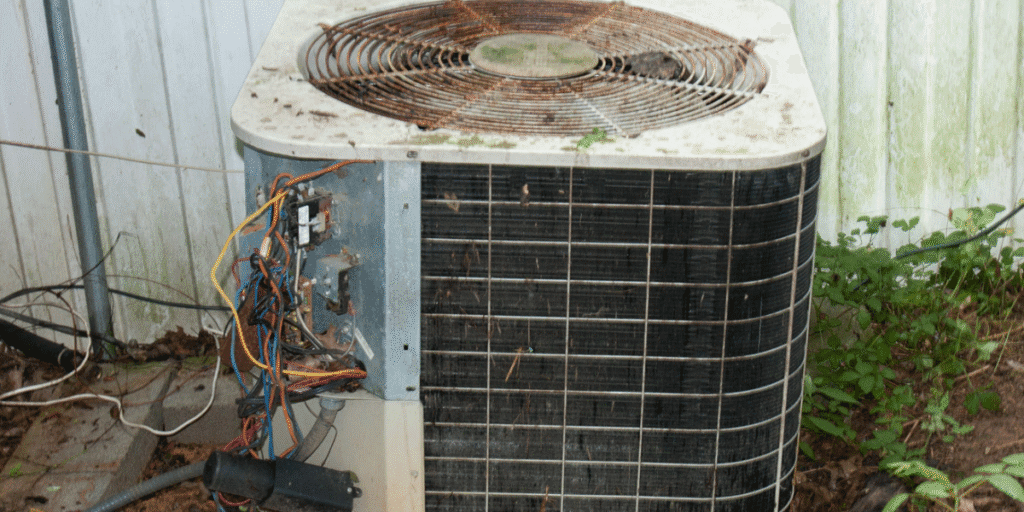When the outdoor temperature gets too hot or too cold, it is also when the electricity bill increases because we do not know how to use the air conditioner properly. One of the main reasons for this is how the AC efficiency temperature changes in response to the rising outdoor temperature. In this article, DEEPCHILL will discuss the issues related to AC performance in heat, air conditioner efficiency, air conditioning service, cooling efficiency, AC energy consumption and suggest what you can do to keep your system running smoothly.
High Temperatures Decrease Cooling Efficiency
The air conditioner works based on the refrigerant gas circulation cycle. Hot air from the room is pulled into the evaporator. There, the refrigerant gas absorbs heat and cools the air. The cooled air is then blown back into the room.
The heated gas moves to the outdoor condenser, where it releases the heat into the environment and becomes liquid again. This cycle repeats continuously. It is essential to the air conditioner’s efficiency and affects the overall cooling performance.
When AC outdoor temperatures rise too high, the air conditioner still follows the same principle. However, AC performance in heat drops significantly. Once temperatures exceed 35–40°C, the condenser struggles to release heat. The hot outdoor air reduces the cooling effect. As a result, the refrigerant gas is not cooled properly. This limits the air conditioner’s ability to cool the room effectively.
The system’s pressure increases, forcing the compressor to run harder and longer. This leads to higher energy consumption. It can also cause the unit to overheat and shorten its lifespan. In some cases, the system shuts down automatically to prevent damage. This is a clear example of how AC performance in heat becomes critical during extreme weather.
You should do
To keep the air conditioner working effectively in hot weather, you should cover the condenser from direct sunlight, ensure good ventilation. You can also use the machine with the right capacity for the room area and clean and maintain it regularly through proper air conditioning service. Using a fan or limiting the opening of doors frequently will also help maintain better cooling system efficiency.
Lower Temperatures Boost Efficiency
When the outdoor temperature is low, the air conditioner (especially the two-way type with heating function) will operate in reverse to provide heat to the indoor space: the hot coil (outside) becomes the evaporator, and the cold coil (inside) becomes the condenser.
Although the outdoor air is cold, it still contains a certain amount of heat. The air conditioner will absorb heat from the outside environment, compress the refrigerant to increase the temperature, and then bring it into the house to heat. This process directly affects AC performance in heat and overall air conditioner efficiency, especially as it relates to AC efficiency temperature during seasonal changes.
However, when the weather is too cold (below 5°C or minus), the performance of the air conditioner may decrease. The outdoor unit is prone to ice build-up, which hinders heat exchange. At this point, the machine will automatically activate the defrost mode – temporarily reversing to heat the outdoor unit, helping to melt the ice. During the defrost period, the machine may temporarily stop blowing warm air.
Source: Hot and Cold: How to Stay Safe in Extreme Temperatures
You should do
To preserve the air conditioner when used in cold weather, especially in heating mode, the condenser should be installed in a high, airy and covered place, avoiding places covered with snow or humidity. Regularly check the condenser, clean the condenser filter every 2–4 weeks, and perform general maintenance on the machine every 6 months. When using, keep the temperature at 24–26°C, avoid turning on/off continuously and close the door to keep the heat.
In addition, it is necessary to use a voltage stabilizer if the voltage is unstable, and prioritize choosing a two-way inverter air conditioner with good heating function in low temperature conditions to minimize AC energy consumption.
Habits Improve Cooling System Efficiency
There are several strategies homeowners can adopt to optimize AC efficiency temperature:
- Use programmable thermostats to reduce the cooling load during peak heat.
- Improve home insulation to reduce heat transfer from outside.
- Shade the outdoor condenser unit to help it release heat more efficiently.
Maintenance Is Crucial For Performance
As mentioned earlier, routine air conditioning service can make a huge difference. If you still haven’t found out where to maintain your air conditioning units, or to prevent them from running in the high temperature, you should contact DEEPCHILL’s air conditioning service.
Technicians at DEEPCHILL will clean coils, replace filters, and ensure refrigerant levels are correct. These simple steps directly enhance your AC’s cooling systems performance, and help you manage the AC energy consumption effectively.
